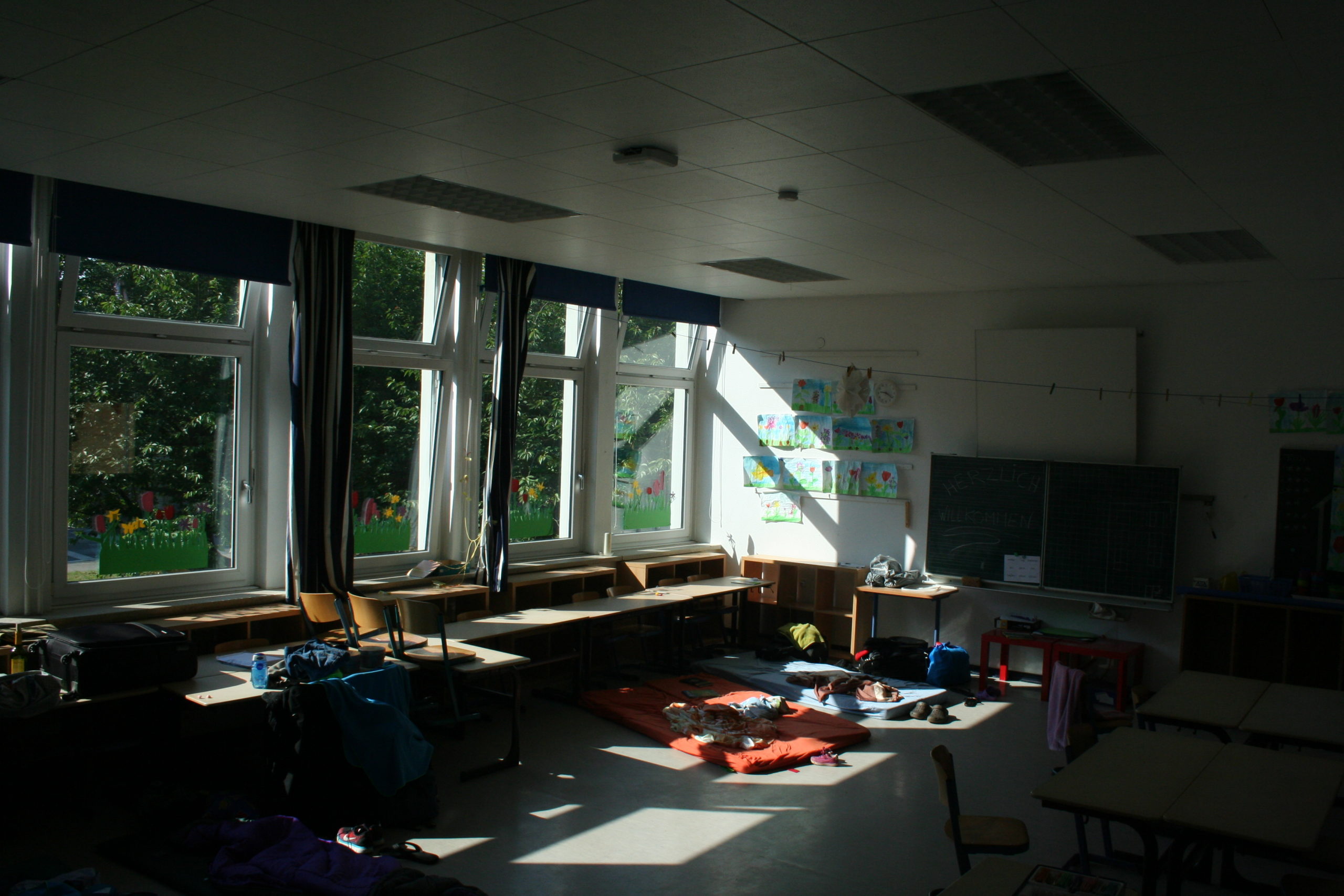
Climate change adapted accommodation in schools
Concretisation of the measure
During Kirchentag around 30,000 people are accommodated in schools. They sleep on their therm-a-rest or airbed. For people with disabilities beds can be ordered by the Kirchentag.
Preparation within the framework of the Kirchentag in Dortmund
During the preperation phase the housing team of the Kirchentag has dealt with the question of how people can be accommodated safely in times of climate change. Above all, the aspect of heat was considered. In the analysis of the infrastructure of the schools, it has become clear, that in most schools it is possible to leave the warmer rooms free, to let the people sleep in the cooler rooms and to darken a large number of rooms throughout the day. In trainings, volunteers, who look after the schools during the Kirchentag, were trained, how to find the cooler rooms of a buliding. They were also informed that they should point out the use and importance of cooler rooms, especially for vulnerable groups (elderly, children, pregnant women, people with disabilities).
During the implementation of the Kirchentag in Dortmund
During the Kirchentag people were accommodated in cooler rooms of schools. In addition, cool emergency rooms were kept for people with heat-related illnesses.
Environmental and climate protection aspect
Raising awareness of the use of cooler rooms in buildings and cooling without energy consumption.
Climate change adaptation aspect
Prevention of heat-related illnesses due to sleeping in too hot parts of premises.
Cost / benefit / effort
No costs, just rethinking the organization. High benefit, especially in the prevention of heat-related illnesses.
“As part of the KlAnG project, we took up the topic of climate-adapted accommodation in the area of the shared quarters for the first time. This was primarily trained as part of a quartermaster training course. The district masters are people who are primarily responsible for looking after the schools.
The idea is to provide cooler rooms for the overnight stays of participants, which can also be darkened if possible. This is to make it possible for people with sleep disorders due to heat to have a suitable place to sleep. In addition, sleeping places should be kept in order to be able to react flexibly during the event if people cannot tolerate a possible heat during the day. The selection of the rooms was made in cooperation with the caretakers, as they could best provide information about the conditions of the respective schools. From the feedback from the quartermaster, we could see that these approaches were very easy to implement and were accepted by most as a good idea. In any case, it should be resumed in Frankfurt.” Sebastian Tölke, project member of the community quarters





